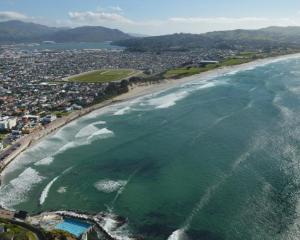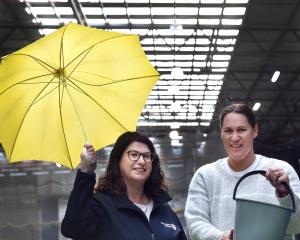
The rare bird had a gash to its stomach, believed to be caused by a barracouta attack.
Wildlife veterinarian Dr Lisa Argilla said barracouta attacks had been "a real issue" for penguins on the Otago coast for some years, but until recently, their injuries could not be treated in Dunedin.

The temporary penguin hospital, set up at the Otago Polytechnic’s School of Veterinary Nursing, gave birds immediate access to treatment.
"One of the main problems we face is infection from wounds.
"Here, in Dunedin, we can start intravenous antibiotics within 24 hours.
"Because of that, our success rate of saving birds is much higher."
The Yellow-eyed Penguin Trust had raised enough funds to contract Dr Argilla to run the hospital for six weeks. Trust general manager Sue Murray said Dr Argilla’s work was crucial for the yellow-eyed penguin population, which was the lowest it had been in 25 years.
"We really need her expertise to help at a time when the yellow-eyed penguin population is at such a critical level.
"There are only 226 breeding pairs left on mainland New Zealand."
The penguin’s surgery went well but it would require another two or three operations to close the wound.
No veterinary students were involved in the surgery. A nurse from St Kilda Vets monitored the anaesthesia and the Otago Polytechnic Veterinary Nursing School head nurse shadowed to learn about avian anaesthesia, Dr Argilla said.
While she would focus on helping penguins, she was prepared to help any rare seabirds.
Advertisement













